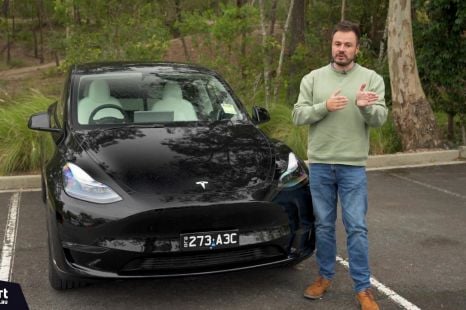

Paul Maric
This Tesla self-drove me 50km to Bunnings on its own (almost)
6 Days Ago

Contributor
The Toyota Mirai hydrogen fuel-cell vehicle (FCEV) has been criticised by scientists for not being clean enough to be called a true zero-emissions vehicle.
An open letter to Games organisers by the Centre for Sustainable Road Freight (CSRF) has called for the Toyota Mirai to be removed as the official car of the XXXIII Olympiad.
“We are writing to express our concern that Toyota’s promotion of a hydrogen car is scientifically misaligned with net-zero and will damage the reputation of the 2024 Games,” says the letter, which has been signed by more than 120 scientists and engineers.
“Opportunity remains to reroute, and we urge that you require Toyota to replace the Mirai with a battery electric vehicle as the official Games vehicle.
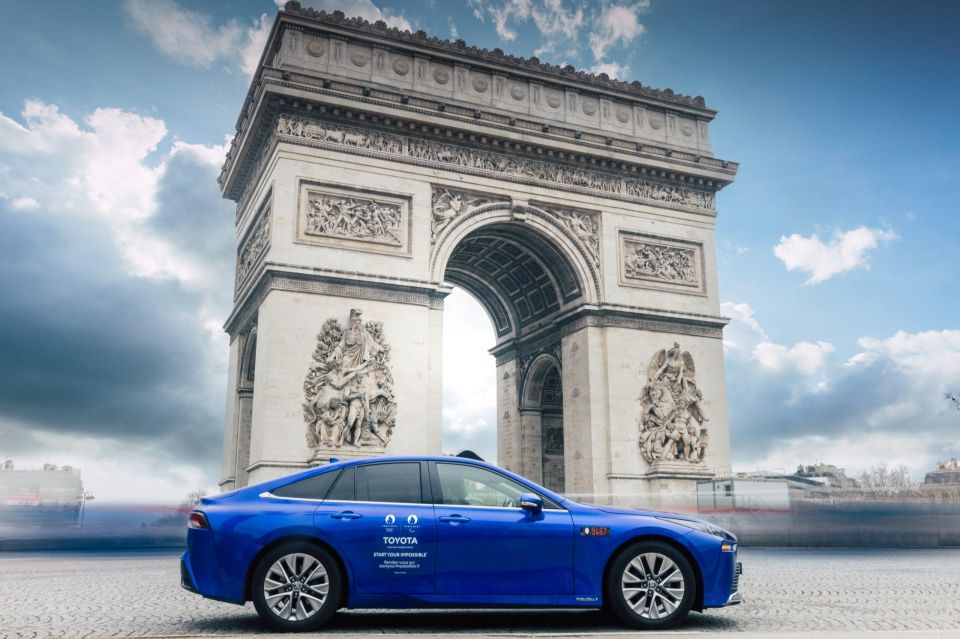
“The IPCC (Intergovernmental Panel on Climate Change) is clear that battery electric vehicles represent the most effective way to decarbonise passenger transport.
“Hydrogen used to power road transport is not aligned with the world’s net-zero goals and ultimately risks distracting and delaying from the real solutions we have available today.”
As with the 2020 Tokyo Games (held in 2021), Toyota is the official supplier of transport vehicles in Paris, which includes 1150 battery electric vehicles (EVs) – likely the bZ4X – as well as 10 hydrogen fuel-cell coaches and 500 Mirais.
The latter uses a fuel cell to convert hydrogen gas into electricity, which then charges a small battery pack that supplies power to its electric motor.
Despite producing no tailpipe emissions other than water, the scientists claim the Mirai doesn’t meet the Olympic Games’ net-zero ambitions because most buyers of the sedan will fill it up with hydrogen which originated as fossil fuels, such as methane gas.
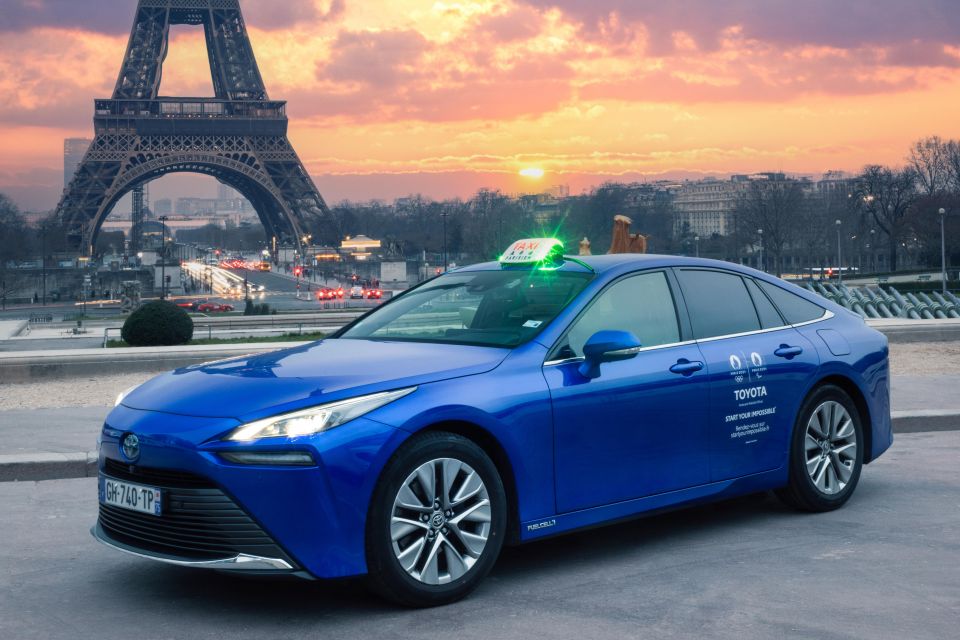
This is commonly referred to as grey hydrogen, while green hydrogen – the kind preferred by the letter’s authors – is produced by the electrolysis of water, with power supplied by renewable energy sources.
While green hydrogen is significantly cleaner than grey hydrogen, the scientists behind the letter to Olympic Games organists say it isn’t enough to become a more environmentally friendly alternative to EVs.
“Green hydrogen powered fuel-cell vehicles require three times more renewable electricity than equivalent battery electric vehicles,” the letter says.
“As a result, they require three times more renewable electricity-generating infrastructure such as wind turbines and solar panels, and are at least three times more expensive to run than BEVs.
“99 per cent of hydrogen today is made from fossil fuels without carbon capture and storage, and consequently the global hydrogen market currently emits approximately the same emissions as the global aviation industry.
“Hydrogen cars are not a viable net zero solution. Because of the high cost and poor availability of fuel, sales of hydrogen cars are in rapid global decline.”
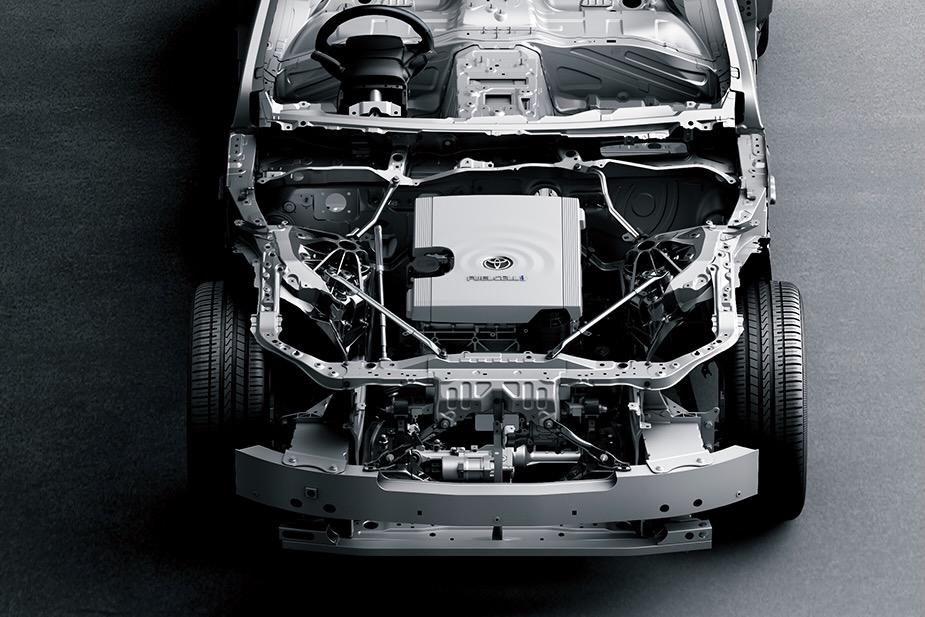
The letter took one final shot at Toyota before again calling for this year’s Olympics to only feature EVs.
“Lastly, we feel it’s important to conclude that even Toyota admits that its Mirai model has not been successful,” it says.
“Toyota itself does not plan to transition to hydrogen cars, with industry data showing hydrogen cars will make up around 0.0% of its production by the end of this decade – a rounding error.
“We urge the International Olympic Committee to enforce that Toyota switches the official Olympics vehicle, and the entire Olympic vehicle fleet, to 100% Battery Electric Vehicles for the 2024 Games.”
The Mirai has recently been dealt a blow in the US state of California, a leading global market for FCEVs.
As reported earlier this year, energy giant Shell closed all of its Californian hydrogen refuelling stations, leaving fewer than 50 stations for passenger cars in the state.
This was followed by California’s Toyota dealers applying rebates worth up to 60 per cent to the purchase price of the Mirai, provided they complied with certain terms and conditions.
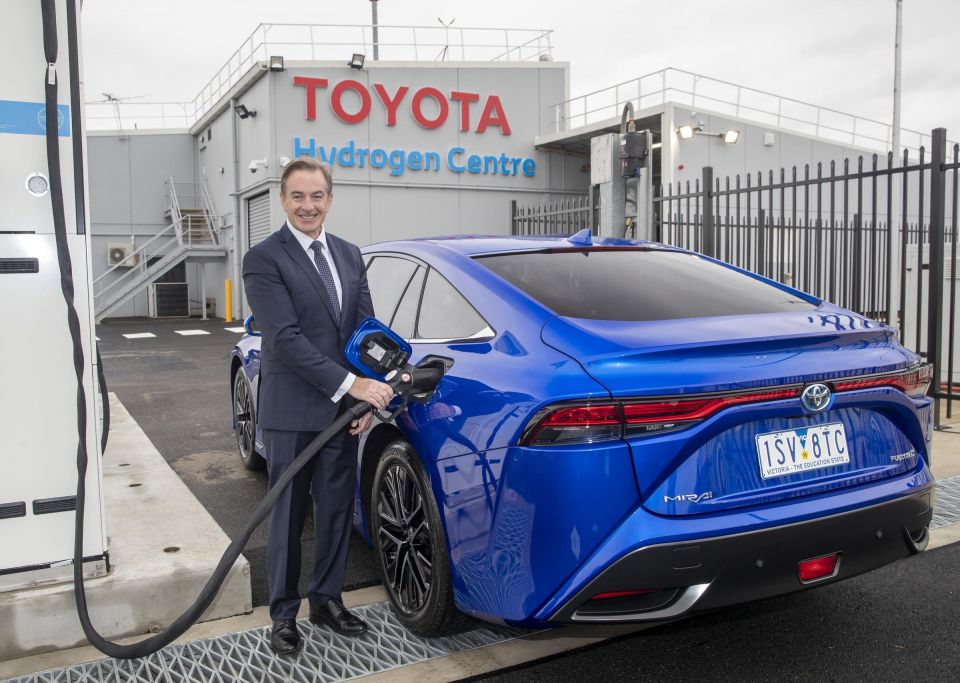
In the US, just 2968 new FCEVs were sold in 2023, all of which were in California. The Toyota Mirai took 2737 sales, while the Hyundai Nexo contributed just 241 sales to the total.
More battery-electric vehicles are sold across the US every day, with 1.2 million EVs sold last year.
In Australia, just four Mirais and four Nexos were sold last year, though neither vehicle is available to the public – instead they’re available on lease deals to organisations approved by the manufacturers.
There are fewer than 10 refuelling stations across the country.
From January to the end of June 2024, seven hydrogen cars were sold in Australia. Across the same period, a record 50,219 EVs were delivered.
Opposition to the Mirai’s Olympics role comes after trenchant criticism from groups such as Greenpeace and Climate Council about Toyota’s alleged lobbying against EVs, its wide range of combustion-powered utes and SUVs, and its slow rollout of EVs.
MORE: Everything Toyota Mirai MORE: Toyota Mirai price cut by 60 per cent as hydrogen demand dies
Where expert car reviews meet expert car buying – CarExpert gives you trusted advice, personalised service and real savings on your next new car.
Born and raised in Canberra, Jordan has worked as a full-time automotive journalist since 2021, being one of the most-published automotive news writers in Australia before joining CarExpert in 2024.


Paul Maric
6 Days Ago
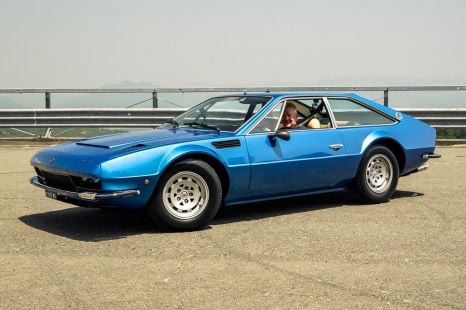

Anthony Crawford
5 Days Ago
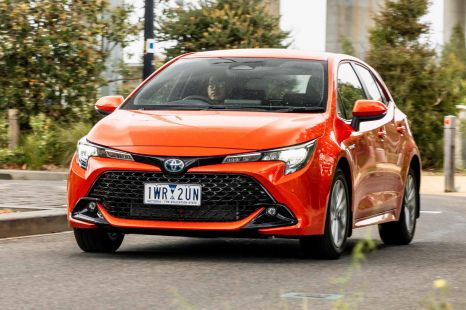

Max Davies
4 Days Ago
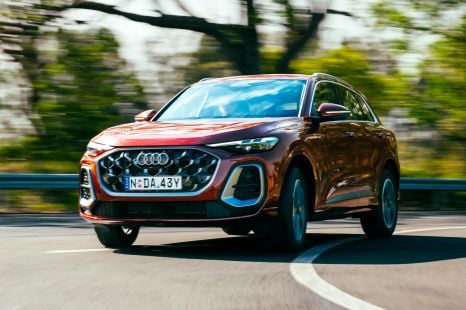

James Wong
3 Days Ago
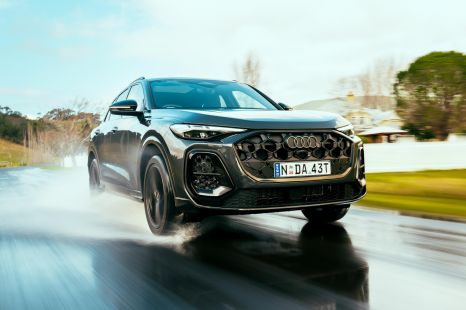

James Wong
2 Days Ago
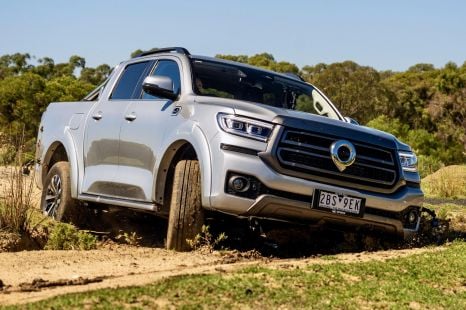

Max Davies
1 Day Ago